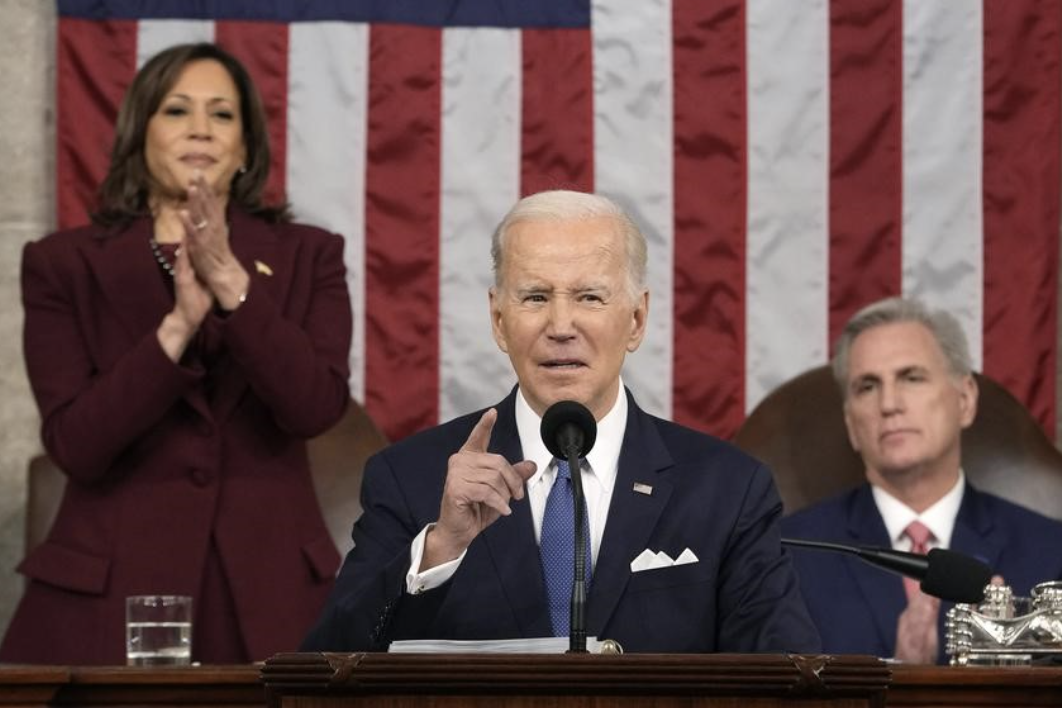Every word we use in our work as public relations professionals provides layers of understanding to the messages we communicate on behalf of our clients. Here are three communication lessons we can apply to our own prose from President Biden’s State of the Union, and Nikki Haley’s 2024 presidential announcement video:
Appeal to Emotions
Political rhetoric is often designed to evoke feelings. In Haley’s announcement video, she states, “Some people look at America and see vulnerability. The socialist left sees an opportunity to rewrite history.” In these sentences, Haley aims to incite the emotions of fear and anger in the audience, as the word “socialist” is seen by some to be an attack on Democracy. These words are trying to link anti-American values to the left, sparking fear about having Democrats in charge.
Biden’s speech is also packed with emotional rhetoric. For example, when discussing the “cancer moonshot” proposal to cut the cancer death rates in the U.S. by at least 50 percent in the next 25 years, Biden stated, “It’s personal to so many of us…” reminding the audience his family lost his son Beau to brain cancer. He also talked about a couple he invited to be in the audience whose daughter, Ava, is currently battling cancer. These emotional pinpoints make it much easier for him to build support for devoting funds to cancer research.
Appealing to emotions is a great tool nonprofits can use in their fundraising or volunteer initiatives, to ignite action and showcase how important it is for others to get involved. For example, Make a Wish often shows images of the critically ill children whose dreams they have fulfilled. This ignites feelings of sympathy and inspires involvement.
Root Your Message in Your Identity
Using identity to further amplify their message and argument is a strong tool speakers can use to establish credibility. Haley highlighted being a person of color and said how as a woman she will stand up to bullies noting, “when you kick back, it hurts more when you’re wearing heels.” This establishes her dominance and strength as a woman, communicating that her identity is her strength in leadership and that, as a woman, she is more than capable of being headstrong and fierce when she’s in office.
Biden used a part of his identity he doesn’t always emphasize to make a political point. When proposing the Billionaire Minimum Tax efforts, which would obligate the wealthiest Americans to pay an equitable amount in taxes, Biden stated, “I’m a capitalist, but pay your fair share. The tax system is not fair.” At once, Biden states his commitment to capitalism while also advocating for a restricting of the tax system that will make capitalism more equitable.
Nonprofits need to share why their work is important with their audience, especially potential donors. Establishing credibility in their identity means that nonprofits “walk their talk” and stay true to their mission and who they are. Their messaging should include how long they’ve been doing this work and communicate the impact they’ve had on the cause they serve. This establishes trust between donors and the organizations, allowing them to have confidence that their donations are truly impacting the cause the nonprofit represents.
Let Your Audience Fill in the Gaps
Enthymemes are a rhetorical device in which one premise is not explicitly stated, leaving the audience to fill in the rest. Haley’s voiceover states, “Some people think our ideas are not just wrong…. But evil,” as images flash of Democratic New York Representative Alexandra Ocasio-Cortez. This tactic invites the audience to fill in the gaps and see Democratic leaders as at the core of the problem.
When Biden discussed his work on the national debt he said, “no President added more to the national debt in any four years than my predecessor.” Biden understands the audience knows who he means, while emphasizing the argument that he was dealt a bad hand, but that he was still able to “clean up the mess.”
Nonprofits can use this tool to keep their audience engaged. For example, the tagline of the nonprofit Earth Justice, an organization that represents clients in court who are at the forefront of environmental justice and health, reads, “Because the earth needs a good lawyer.” This slogan lets people read between the lines, making the logical connection that a lawyer protects rights, and that Earth and the environment’s rights are at stake. This communicates the urgency and importance of their work with just a few words that engages their audience.
These strategies show communication is a powerful tool that nonprofits can use to benefit their organizations and it’s worth seeking out effective strategies to get the job done.


